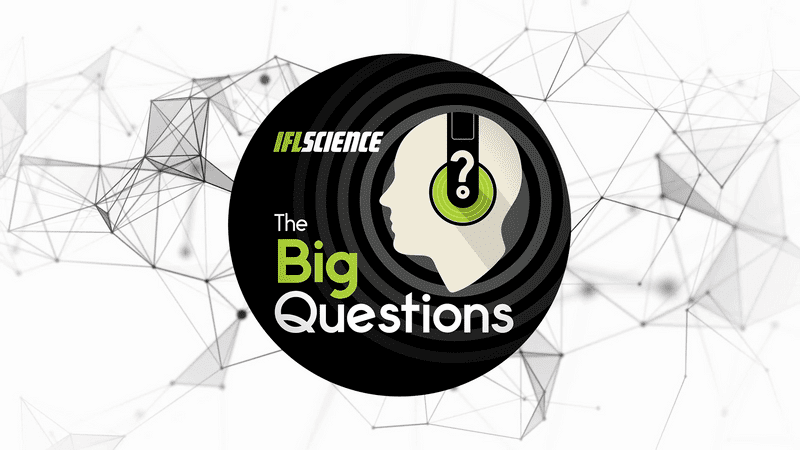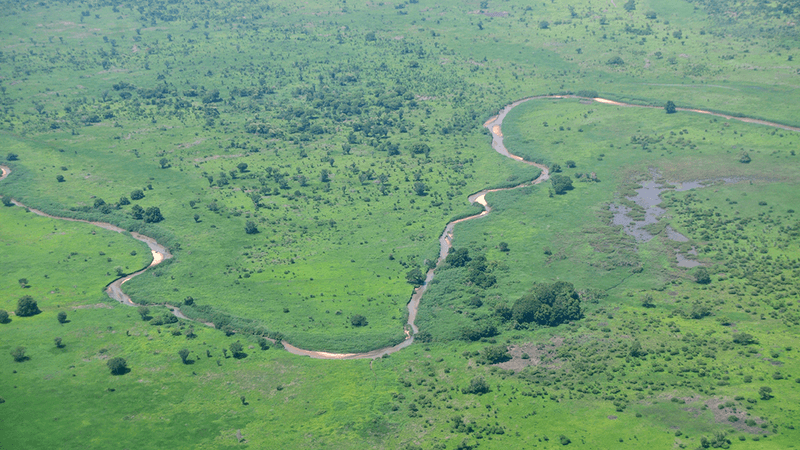Season 2 of IFLScience's podcast The Big Questions has come to an end and we couldn't be prouder of the fascinating scientific mysteries tackled, from what goes on in our brain when we drink alcohol to the very literal end of the universe. Hosts Dr Alfredo Carpineti and Rachael Funnel were joined by international guest experts to investigate questions and problems at the very limit of our knowledge. What did we learn? Find out below.
Episode 1 - How Will The Universe End?
Dr Katie Mack, the Hawking Chair in Cosmology and Science Communication at the Perimeter Institute, tells us everything we wanted to know and more about the end times of the cosmos.
Episode 2 - Is The Future Of Farming Underwater?
Together with BBC Earth, we speak with Luca Gamberini of Nemo’s Garden, an innovative approach to agriculture that takes plants from land to below the surface of the oceans, seas, and lakes.
Episode 3 - Can Humans Live Forever?
Together with Dr Andrew Steele, author of Ageless: The New Science of Getting Older Without Getting Old, we discuss the latest news on the medical fight against old age and whether humans could ever live forever.
Episode 4 - How Do We Know When A Species Is Extinct?
When we think a species is gone, is it gone for good? We tackle the complexity of extinction, and sometimes rediscovery, with Dr Barney Long of Re:wild, whose mission is the conservation of endangered mammal species and ways of recovering their populations.
Episode 5 - Why Is The Universe Made Of Matter And Not Antimatter?
In this episode we look into an unsolved mystery of physics: why does our universe prefer matter to its mirrored version known as antimatter? Experimental physicist and Alpha spokesperson Professor Jeffrey Hangst helps unravel this puzzle through what we know and what we are yet to find out.
Episode 6 - How Does Imagination Work?
Professor Tyler Marghetis from the University of California, Merced takes us on a journey inside our brains to discuss the human ability of abstract thinking and how imagination shapes our experiences.
Episode 7 - Is Math The Greatest Subject In The World?
The most controversial episode tackles the polarizing subject of mathematics, so we are joined by British mathematician Professor Nira Chamberlain, listed by the Science Council as “one of the UK’s top 100 scientists” to make the case for math as the pinnacle of human ingenuity.
Episode 8 - How Does Your Diet Impact The Body’s Ability To Fight Disease?
Dr William Li is a physician, scientist, and author that has dedicated much of his work to understanding what role diet plays in diseases, not just in keeping us healthy but also to give us an edge against ailments. We discuss that and much more.
Episode 9 - What Are The Limits Of Computers And Supercomputers?
We talk with Professor Mazhar Ali of the Delft University of Technology about the latest innovation and the limitations that we might encounter as we try to make computers and supercomputers better and faster.
Episode 10 - What Do Alcohol and Drugs Do To The Brain?
Neuropsychopharmacologist Professor David Nutt reveals how drugs and alcohols affect our brains with positive and negative effects, and how he and others are looking at the manufacturing of alcohol without the negative consequences.




